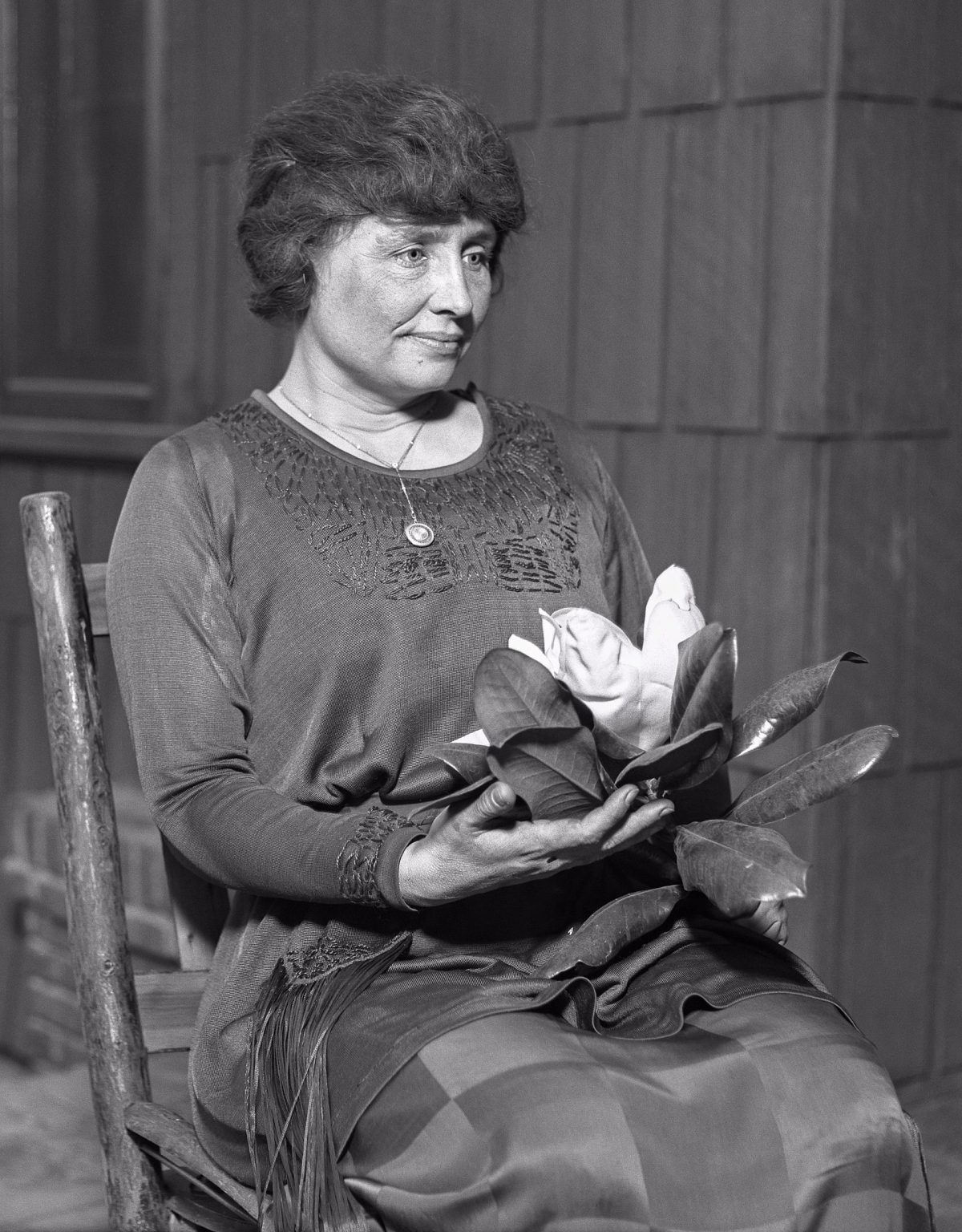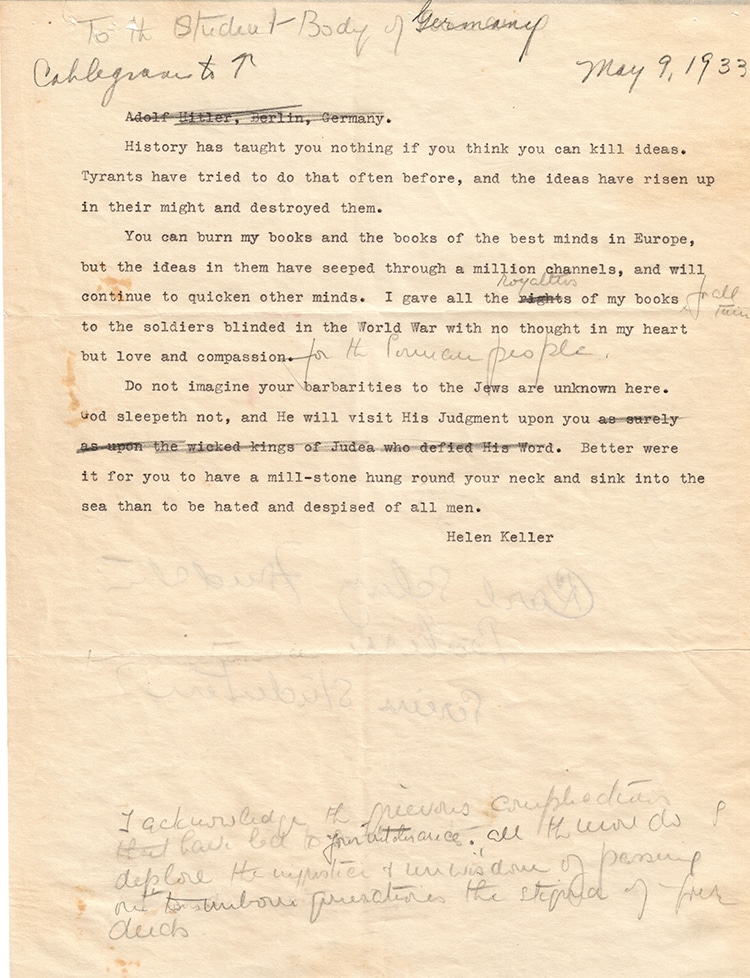“History has taught you nothing if you think you can kill ideas. Tyrants have tried to do that often before, and the ideas have risen up in their might and destroyed them’
– Helen Keller

Helen Keller is best known for her campaign to help the disabled and support for eugenics. Made deaf and blind by a childhood illness, Keller learned to read, write, use sign language and speak, and secured a Bachelors of Arts degree.
After reading that Nazi were burning books written by Jewish authors and other so-called degenerates – including Keller’s book, How I Became a Socialist – at a nationwide festival of hate on May 10, 1933, she wrote a letter to the New York Times.

A uniformed member of the Nazi SA and a student of the Academy of Physical Exercise examine materials plundered from the library of Dr. Magnus Hirschfeld, director of the Institute for Sexual Science in Berlin on May 6, 1933.
Keller for her part was aware of this attack’s anti-Semitic focus. “Do not imagine that your barbarities to the Jews are unknown here,” she wrote in her open letter. Her letter, shared below, speaks to the power of ideas and the impotency of the fascist response to destroy and suppress. While incredibly dangerous, such responses cannot kill ideas which have already permeated the ether of society. Her words, while spoken 90 years ago and directed at a foreign nation, are worth remembering today, as books are banned from school libraries or pulled from public shelves for describing the experiences of people of color and LGBTQ+ individuals. History, as always, must prove a lesson—even as book banning parties would try to rewrite it.
Helen Keller’s Letter:

To the student body of Germany:
History has taught you nothing if you think you can kill ideas. Tyrants have tried to do that often before, and the ideas have risen up in their might and destroyed them.
You can burn my books and the books of the best minds in Europe, but the ideas in them have seeped through a million channels and will continue to quicken other minds. I gave all the royalties of my books for all time to the German soldiers blinded in the World War with no thought in my heart but love and compassion for the German people.
I acknowledge the grievous complications that have led to your intolerance; all the more do I deplore the injustice and unwisdom of passing on to unborn generations the stigma of your deeds.
Do not imagine that your barbarities to the Jews are unknown here. God sleepeth not, and He will visit His judgment upon you. Better were it for you to have a mill-stone hung around your neck and sink into the sea than to be hated and despised of all men.
Her words on learning from history, and the resilience of ideas against oppression, can certainly have modern meaning.
h/t: [Open Culture]
Would you like to support Flashbak?
Please consider making a donation to our site. We don't want to rely on ads to bring you the best of visual culture. You can also support us by signing up to our Mailing List. And you can also follow us on Facebook, Instagram and Twitter. For great art and culture delivered to your door, visit our shop.









